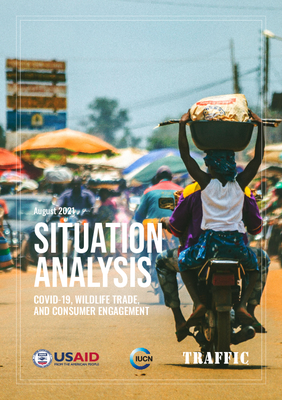Situation Analysis: COVID-19, Wildlife Trade, and Consumer Engagement
Despite evidence still being unclear as to the origins of the virus, people’s relationship with and consumption of wild animals such as pangolins has been irreversibly cast into sharp relief. Even if COVID-19 proves not to have originated from wild animals in trade, the COVID-19 pandemic has brought global attention to the growing number of wildlife-linked diseases emerging as major human health concerns - ranging from HIV to SARS, MERS, H1N1 (swine flu), H5N1 (avian flu) and Ebola. For many of these, there are strong indications of disease transmission links to wild animal trade.
https://biodiversitylinks.org/learning-evidence/one-health-evidence/one-health-evidence-inbox/traffic-2021_situation-analysis-covid-19-wildlife-trade-and-consumer-engagement.pdf/view
https://biodiversitylinks.org/learning-evidence/one-health-evidence/one-health-evidence-inbox/traffic-2021_situation-analysis-covid-19-wildlife-trade-and-consumer-engagement.pdf/@@download/image/image.png
File
Situation Analysis: COVID-19, Wildlife Trade, and Consumer Engagement
Author(s):
TRAFFIC
,
USAID
,
IUCN
Publication Date: 2021
DOWNLOAD FILE
Despite evidence still being unclear as to the origins of the virus, people’s relationship with and consumption of wild animals such as pangolins has been irreversibly cast into sharp relief. Even if COVID-19 proves not to have originated from wild animals in trade, the COVID-19 pandemic has brought global attention to the growing number of wildlife-linked diseases emerging as major human health concerns - ranging from HIV to SARS, MERS, H1N1 (swine flu), H5N1 (avian flu) and Ebola. For many of these, there are strong indications of disease transmission links to wild animal trade.



